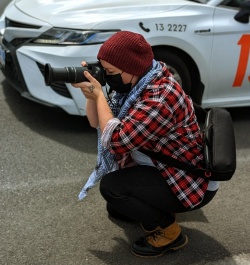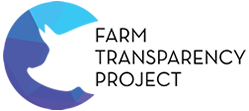News & Media > Editorials > Facts Based Advocacy: we need to get it right
Facts Based Advocacy: we need to get it right
CW: this editorial includes descriptions of violence against other animals.
Some years ago an image of a slaughtered bullock went viral across Facebook. The image was variously claimed to have originated from India, Pakistan, "somewhere" in the Middle East region and China (a reflection of the racism that sometimes informs online animal rights advocacy), and purported to show the bullock as having had their legs cut off to immobilise them and as being in the process of being skinned alive. It was a deeply confronting image, and one that was difficult not to have an immediate emotional response to. However, the claims the animal was still alive in the image were manifestly untrue. As someone with an understanding of how animal bodies work (including human bodies), an understanding that I have gained from myriad experiences working and living with other animals in a variety of contexts, it was apparent that the animal depicted in the image was very much deceased. Yet no matter how politely myself and other people shared this factually based information, we were met with defensiveness that often resulted in outright hostility. And to this day the image continues to be widely shared with the same erroneous caption.
This is not an isolated incident.
Whilst social media can prove an effective tool for animal advocacy it is also designed in a way that encourages the dissemination of misinformation, which has the very real potential to undermine the integrity of organisations and individuals who utilise it, and the credibility of entire movements.
As an advocate, I spend much of my time reading industry produced publications, and I frequent a variety of online groups for butchers, slaughter-workers, and dairy farmers. Not because I especially want to, but because they offer a wealth of information from the "other side". It is not only insights into the workings of these industries that become accessible via these sources; attitudes towards vegans and animal rights activists are also broadly shared. And one thing I have noted is that when factually incorrect images and captions go viral, they are invariably shared into these groups where they are critiqued and derided. One of the most common comments on such posts is "vegans don't know anything."
And guess what? They're right, at least to a certain extent; vegans and animal rights activist don't know everything. We all have such a diverse range of experiences, and what we know or don't know is informed by those experiences. Some of us were previously farmers or slaughter workers, some of us the children of hunters, some of us may be academics and researchers, and some of us may be entirely dependent upon the information we see shared by content creators or investigators. Some of us may have understandings that others may not; and even then, we may occasionally provide information that is factually not credible.
There is no harm in being wrong. Where the harm occurs is in the defensive refusal to engage in the productive and meaningful conversations that are necessary to make sure what we are putting out there is factual. Where the harm lies is in the stubborn refusal to accept that sometimes we are simply not right, or even that we may be partially incorrect.
As animal advocates there is a group of people whom we encounter daily who try to claim the position of being solely in possession of all the facts about the industrial exploitation of other animals, people whose lives revolve around constant interaction with other animals: farmers. The narrative farmers promote is that any information that is shared that contradicts the image they promote of the farming of other animals is not only factually incorrect, but is instead base propoganda. When we do share images with captions that are not accurate representations of what is actually being depicted, we provide farmers and proponents of these industries with ammunition that can be deftly utilised to further undermine the credibility of animal advocacy. And given the social capital farmers enjoy in Australia, through the colonialist ideology that upholds the farmer as the backbone of the nation, this is ammunition we as advocates cannot afford to provide.
There is no need for us to model the behaviour of farmers and the proponents of farming, and refuse to engage in conversations with our fellow animal advocates who may have insights that may contradict the information we are transmitting. Simply put, it is okay to be wrong. What we must learn to avoid, however, is falling into the traps of social media that encourage divisions and conflict, pitfalls that (as is being revealed) are deliberately written into the very programs we are so reliant upon for the dissemination of content.
The liberation of other animals from human exploitation is a fundementally revolutionary goal. But perhaps in order to actualise this we need to embrace the revolutionary tools of questioning, of progressive dialogues, of asking questions, and of accepting that we are not the sole fonts of wisdom by rote of the justness of our cause.



